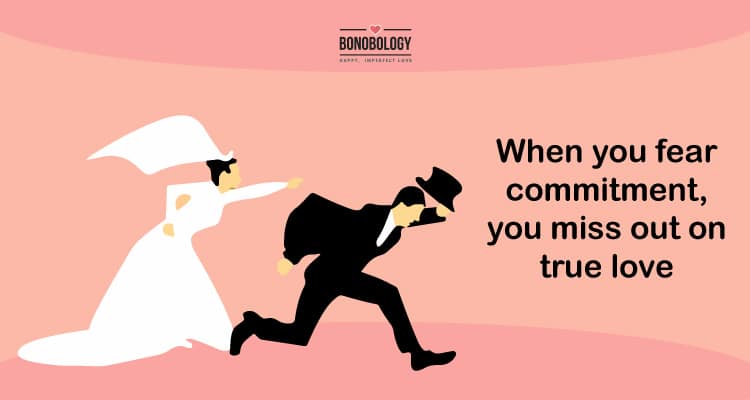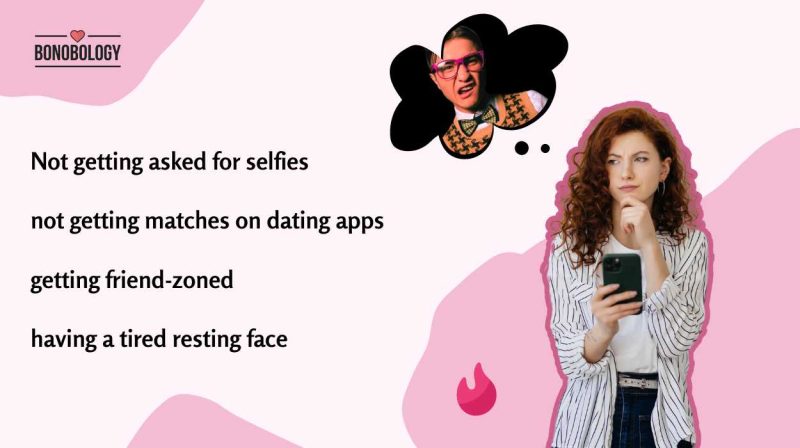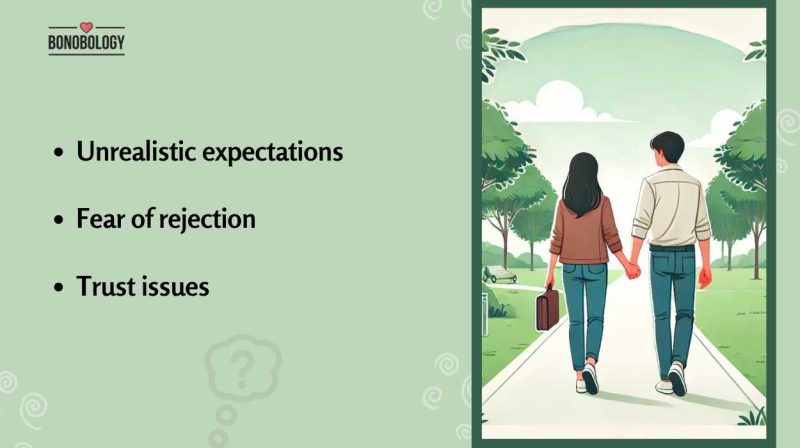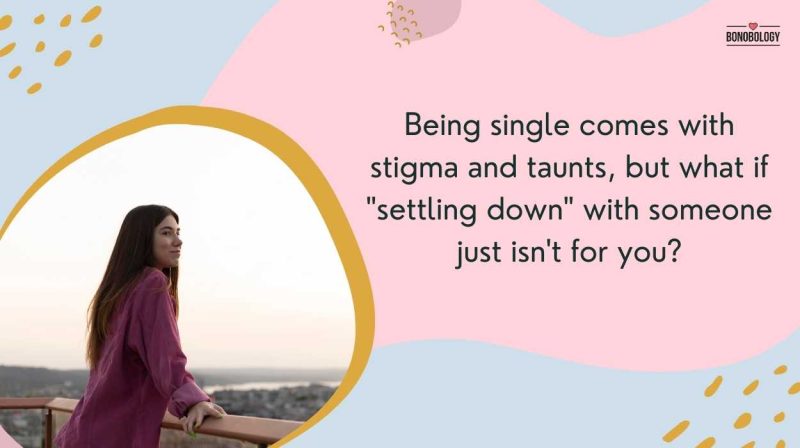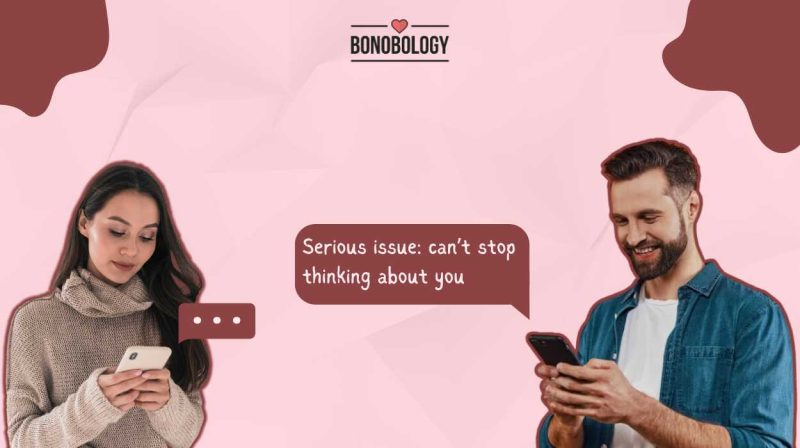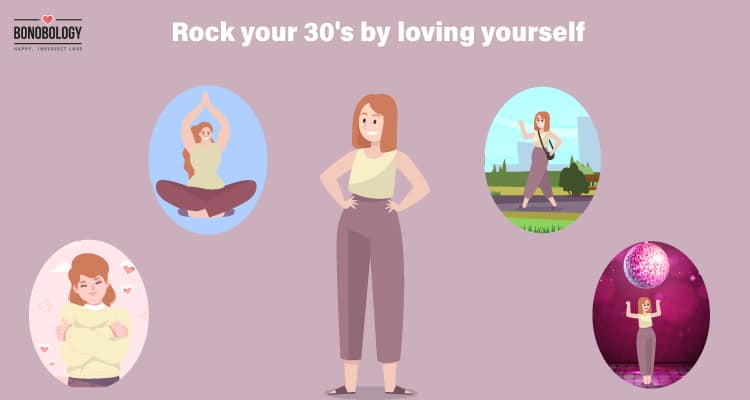We’re always told that relationships are forged organically, that is, easily. When you find the one, you just know it. If you are someone who struggles with a fear of commitment, or commitment issues as they’re commonly referred to, you’d contend that such a sweeping statement couldn’t be further from the truth.
After all, for you, the experience of being in a relationship has been exactly the opposite. While you do get attracted to people and have no trouble dating casually, the minute your feelings begin to get intense or your partner gets invested in the relationship, you feel like you’re drowning in anxiety.
As the relationship progresses, this anxiety snowballs out of control. You get so scared of commitment that you bolt away from strong feelings at the first opportunity you get. Sounds familiar? Let’s help you get to the root of this fear of commitment, also known as gamophobia, and learn to cope with it better with the help of clinical psychologist and certified CBT practitioner, Kranti Sihotra Momin, who specializes in handling relationship-centric conflicts and issues.
What Is The Fear Of Commitment?
Table of Contents
Kranti says, “Fear of commitment can be defined as having serious trouble maintaining long-term relationships or honoring commitments. This fear can often become all-pervasive and affect a person’s professional, personal, and social life as well. However, it is seen most commonly in the case of romantic relationships. Or at least, that’s where it manifests most strongly.
People with commitment issues do experience love, but for them, the fear of finality in a committed relationship is so overwhelmingly intense that it overpowers whatever feelings they may have for a partner and impedes their ability to build a strong, meaningful connection with their significant other. Even if they want to build long-term, meaningful relationships, anxiety prevents them from staying with a partner for too long.
Related Reading: 12 Signs You Have Found Your Soulmate
What makes people scared of commitment?
Like any other psychological issue, a fear of commitment doesn’t take hold in isolation. There are always underlying triggers for this tendency. Kranti lays out some of the key causes behind the commitment phobia:
- Poor relationships: Having experienced or been around poor romantic relationships can instill skepticism about love. An intense heartbreak or parents’ divorce can make a person scared of commitment
- Bad breakup: A person who has been dumped unceremoniously is likely to be wary of getting deeply attached to another person. In such cases, this inherent fear may be a defense mechanism to prevent their heart from being skinned again
- Indecisiveness: The constant quest for the “right person” or the fear of ending up with the wrong person is also a trigger for this tendency
- Unfulfilling intimate relationships: Having experienced abandonment, abuse, or infidelity in intimate relationships, especially during childhood or formative years leading up to adolescence can also be a tigger for gamophobia
- Trust issues: Trust issues are a common underlying cause for commitment issues
- Childhood abuse: A commitment-phobe may have suffered trauma or abuse as a child
- Unmet emotional needs: Attachment issues or unmet emotional needs during childhood can also make a person scared of emotional dependence in their adult life
- Growing up in a dysfunctional family: People from broken homes or dysfunctional families are likely to be wary of long-term relationships

As you can see family history and childhood experiences are common underlying triggers for flight response to commitment. The only way to overcome fear is to get to the root of it. For that, you first need to acknowledge and accept your commitment-phobic tendencies. To help you take that first step toward embracing the possibility of being in a committed relationship, let’s take a look at a few tell-tale signs, and a few questions you can ask yourself.
Related Reading: 17 Unwritten Rules Of Dating We All Should Follow
Take This Fear Of Commitment Quiz
Are you really dealing with the fear of commitment or the wrong person? Do you exhibit a pattern of running away from the prospect of a long-term relationship? Or have you just been dealt a rough hand in all of them? How do you know if you’re riddled with commitment issues? Take this quiz to understand better:
- Do you always find fault with the person you are dating? Yes/No
- Do you often find yourself breaking up with your partner, or ghosting them toward the end, and not the other way round? Yes/No
- When you break up with your partner, are they often surprised because according to them, “things were going well”? Yes/No
- Do you prefer casual hookups to a committed relationship? Yes/No
- Do you feel neglected by friends who are in serious relationships? Yes/No
- Can you express your feelings to family and friends? Yes/No
- Do you feel that you always get attracted to the wrong person? Yes/No
- Are you committed to your career, family, and friends? Yes/No
- Do you like keeping yourself busy so that you can avoid a relationship? Yes/No
- Do you feel claustrophobic in a relationship? Yes/No
If you have said “yes” to even five of these questions, then you may have serious commitment issues. You might find yourself scared to be in a relationship, and when you do manage to get into one, you’ll notice that you tend to focus on your partner’s flaws more than their strengths. This, in turn, causes your relationship anxiety to skyrocket. If this has got you going over all your personal relationships with a fine-tooth comb, let’s take a closer look at some signs of commitment issues for greater clarity.
What Are Signs Of Commitment Issues?
Identifying your own issues is often the hardest. Even if you have been caught in a string of short-term relationships, it may be hard to tell bad dating luck apart from a pattern of fear of commitment. If you have been introspecting about whether your lack of success on the romantic front points to something more significant, it helps to know the signs of commitment issues:
1. No inclination to date seriously indicates a fear of commitment
This is not to suggest that anyone who wants to date casually has commitment issues. There can be many reasons for that choice. Perhaps you’ve just got out of a long-term relationship, or you’re concentrating on your career right now, or you’ve made an informed choice to continue dating casually.
However, if it has been a pattern in all your romantic relationships, you need to pay heed. Kranti says, “This tendency can be considered as one of the scared of commitment signs, especially if you’ve consistently ended relationships when things begin to get serious. Even though you may like the person you’re with or might even be in love with them, the thought of moving past the casual stage fills you up with anxiety.”

2. You don’t plan for the future in any relationship
“When two people are in a relationship or dating, the thought of a future with their current partner comes naturally. This happens long before they discuss long-term possibilities with each other,” says Kranti.
So, how do you know if you struggle with gamophobia? Pay attention to this: If you’ve never envisaged a future with a person you’re romantically involved with or the vision of a future with them fills you up with dread, it is an indication that you struggle with a fear of commitment.
You may tell yourself that this is because you want to live in the present. Or because this person doesn’t seem like the right fit. But if this unwillingness to think about the next stages of a relationship has been a pattern, you’re operating from a place of fear and anxiety.
Related Reading: 10 Tips to Date When You Have Social Anxiety
3. A commitment-phobe always questions their relationships
Commitment phobia must not be confused with an inability to love. On the contrary, your fear may be a result of intense feelings for your partner. You may love them but are scared to commit. You care for your partner, feel connected to them, enjoy their company, and yet, you cannot stop questioning your relationship.
- “What if they don’t love me?”
- “Are things moving too fast?”
- “Will this work out in the long run?”
- “Am I ready to settle down?”
If these questions weigh on your mind so much that they begin to interfere with your ability to form a healthy relationship, there are definitely commitment issues at play. In fact, this tendency to second-guess a relationship every step of the way is one of the characteristics of commitment issues in women and men.

4. Plans scare you
No, we’re not talking about long-term plans. Even immediate plans fill you up with a sense of nervousness. Your partner wants to spend the weekend together or go to the movies on a Friday night, but you just cannot bring yourself to say yes. Instead, you dodge till the last minute with non-committal responses such as “let’s decide closer to the date” or “I’ll let you know” or “let me think about it”. Even if you do say yes, the thought of going through with it makes you anxious and stressed out.
Take, for example, the case of Riley, a 26-year-old lawyer. Though she likes spending time with her partner, Jacob, she always wonders if things are going too fast. She says, “Even if he makes plans for a movie and dinner, I freak out thinking he is getting too invested and I may not live up to his expectations. Why do I have commitment issues with everything?” Like Riley, if you too like the person you’re with and still hesitate in making even short-term plans with them, you’re undoubtedly scared of commitment.
5. If you lack emotional connection, you’re scared of commitment
You don’t feel emotionally attached to a partner, even if you like them. In fact, you may even make a conscious effort to steer clear of developing any emotional dependence on them. This lack of emotional connection is the mind’s way of “protecting” you from getting hurt or suffering heartbreak in case things don’t work out.
“Since an emotional connection is lacking in your relationships, you find it easy to let go of them. You have a good time when you’re together but their absence doesn’t bother you. This enables you to move on from relationships without batting an eyelid. Instead of getting over commitment anxiety, you prefer to move on,” explains Kranti.
Related Reading: How Long Does It Take To Fall Out Of Love?
6. Commitment makes you feel trapped
When you’re scared of commitment, it doesn’t matter whether that commitment is your own or someone else’s. That’s why if a partner displays signs of getting invested in the relationship, it makes you feel trapped. For instance, if your partner says, “I love you”, instead of saying it back, you begin overthinking what it means.
- “Are they getting too attached?”
- “Do they want to settle down with me?”
- “Where is the relationship going?”
- “What next? Marriage, kids, family?”
“These thoughts make you uneasy and anxious, and fill you up with a desire to run away. You may or may not want to end a relationship just because your partner said “I love you”, but at that moment, you need nothing more than to get away from them,” says Kranti.
Scared Of Commitment – 7 Tips To Cope
If you identify with these scared of commitment signs, you may find yourself asking, “Is it normal to fear commitment? How will this impact my life? How do I stop being scared of commitment?” You might even tell yourself that when the right person comes along, you won’t have trouble forging a healthy relationship with them. But that isn’t really true.
Unless you start addressing the gamophobia and do something about it, the anxiety and relationship insecurities will always prevail over your ability to stay in a committed relationship. If this pattern has left you feeling unfulfilled in your personal life, these 7 effective tips can help you work through your fear of commitment and build enduring bonds:
1. Get to the root of the fear of commitment
Kranti advises, “To overcome the fear of commitment, you have to first identify the triggers. If there has been a traumatic or emotionally distressing event in your past such as a tough breakup or your parents’ separation, you can easily narrow down your commitment issues to these occurrences.
“However, if there are no such obvious underlying causes at play, this inability to let your guard down might be rooted in more complex issues like childhood experiences that may have led to an insecure attachment style. Irrespective of the reason, working with a counselor or going into therapy is essential to accurately ascertain the triggers and seek commitment phobia treatment.”
If you’re single and tired of being trapped in a cycle of short-lived, unfulfilling romantic connections, individual therapy is the way to go. On the other hand, if you’re feeling trapped in a relationship but don’t want the pattern of breaking up and running away to repeat, couples therapy can work wonders in helping you and your partner tide over these rough waters. If you’re looking for help, skilled and experienced counselors on Bonobology’s panel are here for you.
2. Face your fear by getting over commitment anxiety
Facing your fears is often the best way to conquer them. We have all been taught that lesson growing up. Our parents coaxed and pushed us to look for monsters under our beds when we were too scared to sleep alone. Or walk through an unlit room to beat the fear of the dark. Or stand up to that bully at school.
Your gamophobia is no different. “To get over commitment anxiety, you have to step outside your comfort zone and stop letting your fear govern the course of your life. If you’re in a relationship, start with small steps such as taking the initiative to make short-term plans like dates or a weekend getaway. Or try to think about being with that person for the long haul and sit with the anxiety for a bit. These simple exercises for commitment phobia can be immensely helpful in breaking problematic behavior patterns,” says Kranti.
Related Reading: 23 Signs Of An Unhealthy Relationship
3. Make room for a partner in your life
Commitment-phobes tend to have extremely busy lives. This serves a dual purpose for them – being occupied with work and other activities doesn’t let them feel the need for a long-term partnership and it gives them an easy out when things begin to get too intense in a relationship.
If you’ve convinced yourself that you cannot be in a serious relationship because you are a workaholic and have no time or energy for it, ask yourself honestly if that’s truly the case. Or are you just using your circumstances as an excuse to steer clear of commitment?
“To overcome fear, you need to take the blinders off and at least give another person a fair opportunity to become a part of your life. Maybe try not to schedule any work-related meetings on weekends and spend time with your partner. Or if it’s a ritual for you to go club-hopping with your friends on Saturday night, take a break and spend the weekend at home with your partner,” advises Kranti.

4. Set small, achievable goals
How do I stop being scared of commitment, you ask? Once you have an insight into your behavior patterns and what triggers them, it is time to take concrete, albeit small, steps to correct the course. These goals can range from changing your outlook toward dating to taking an existing relationship to the next level, getting over your inhibitions and planning a date with your significant other, or even not holding back from saying “I love you” to your partner.
No, we’re not suggesting that you decide to move in with your partner overnight. But taking a trip or inviting them to stay the night at your place are good starting points to get over commitment issues. Kelly, a 32-year-old architect, did just that when she noticed signs she is afraid of commitment. She started saying yes to a lot more dates. Once the relationship blossomed, she no longer felt the need to avoid emotional intimacy with her partner.
Related Reading: Jealous Girlfriend: 15 Signs She Is Being Overprotective And Driving You Nuts
5. Free yourself from the ‘right person’ mirage
“In monogamy, committing to one partner means choosing them from among all the options available to you in the dating world. However, when a person is gripped by the fear of ending up with the wrong person, they just cannot bring themselves to make that choice. There is a lot of fish in the sea. What if there is someone better for me out there? – These thoughts often become their torments,” says Kranti.
But this search for the “right person” or the “perfect partner” can prove to be a mirage that leaves you exhausted and lonely. Of course, you can’t choose your life partner lightly. So, before you take this leap, think about what you want in a partner but don’t be too rigid in measuring a prospect vis-a-vis the standards you’ve set.
“If you’re in a relationship, assess whether your partner checks these boxes. If you’re dating, focus on picking people whose outlook and goals align with yours. Once you find the person who is really close to your idea of an ideal partner, give commitment a chance,” she adds.
6. Socialize with people in healthy relationships
Have you ever found yourself thinking: Is it all right to have fear of commitment? Or, so what if I’m scared of commitment? If you’ve had bad relationship experiences in the past or been in/witnessed abusive relationships, you may think that being alone is not half as bad as being with someone who can trample all over your heart.
“One way to change this outlook is to surround yourself with people who are in healthy relationships. Your friends, siblings, or coworkers. This is especially critical for people who’ve developed a fear of commitment because of seeing bad relationships, either firsthand or around them.
“Seeing people who are happy with their spouses and couples who complement each other can give you a new perspective on relationships. It’ll help you see what a holistic partnership looks like. Maybe you’d realize that you want that in your life,” says Kranti.
7. Talk about your fear of commitment
Let’s say you’re in a relationship but despite being in love with your partner, you feel scared to commit. Or you enjoy being with them but don’t know if they’re the best choice for you. Perhaps, your friends or family have been giving you grief about a string of broken relationships.
“Don’t evade the conversation or find excuses for why you feel things aren’t working out. If you’re in a relationship, talk to your partner about the fear and anxiety you feel. When other loved ones express their concern, share your inhibitions with them openly. Laying your fear bare to others is one of the best ways of getting over commitment anxiety,” says Kranti.
Key Pointers
- Fear of commitment impedes your ability to build meaningful, long-term relationships
- This fear can be rooted in family history, childhood experiences, bad relationship experiences, or having been in/witnessed abusive relationships
- Commitment issues can be a form of defense mechanism
- With the right help, you can learn to manage these fears and anxiety and build an enduring bond with your partner
A struggle with commitment issues can truly limit your ability to open your heart and life to the possibility of real love and can take a toll on your emotional well-being. While it is often a sum of your life experiences, whether or not you let those unpleasant chapters govern how you live your life is up to you. With the right help and a will to break unhealthy patterns, you can overcome your fears and experience relationship success.
FAQs
There could be a number of reasons behind a fear of commitment. Past relationships not working out, toxic childhood, or fear of ending up with the wrong partner are some of the common triggers for gamophobia.
You might like someone, you might even be in love with them, but when the relationship starts moving from casual dating to something more serious, you start feeling trapped. You have no space for a partner in your life and you feel if you commit, you will hand over the reins of your life to someone else. If you feel this way, you are scared of commitment.
The first thing you should do is delve into the root of your commitment issues. Look into why you feel this way. Then try to face your fears and slowly make space for a partner in your life. If not living together, try to spend a night or two with them to build a bond. Socialize more often, be around people who are in healthy relationships, and talk about your fears with a counselor.
Communication Problems In Relationships – 11 Ways To Overcome
5 Things That Make A Relationship Work | The Basic Essentials
Your contribution does not constitute a charitable donation. It will allow Bonobology to continue bringing you new and up-to-date information in our pursuit of helping anyone in the world to learn how to do anything.

